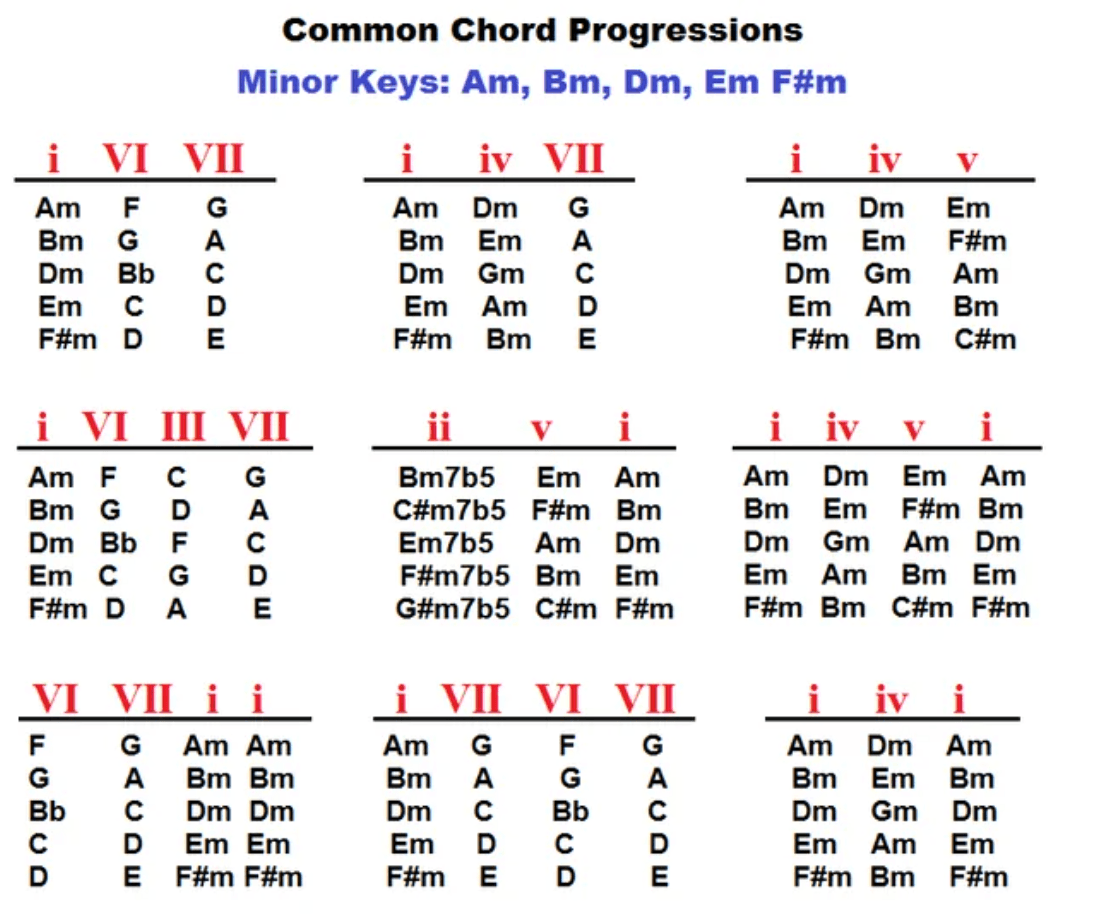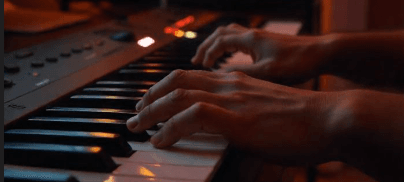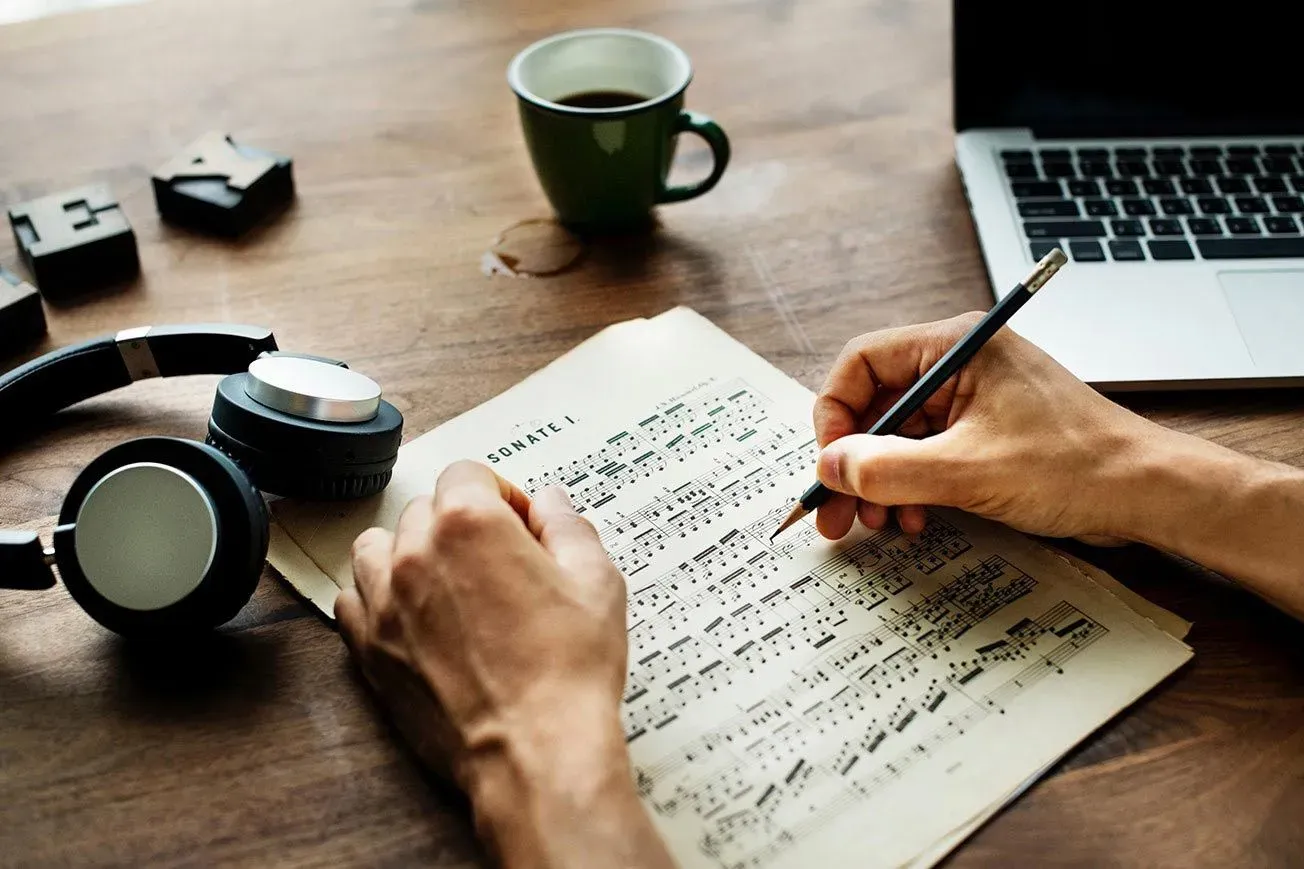Ever dreamt of generating a catchy songs with the mere click of a button? Welcome to the era of the AI song generator, where innovation fuses with creativity, allowing you to craft masterpieces in mere seconds!
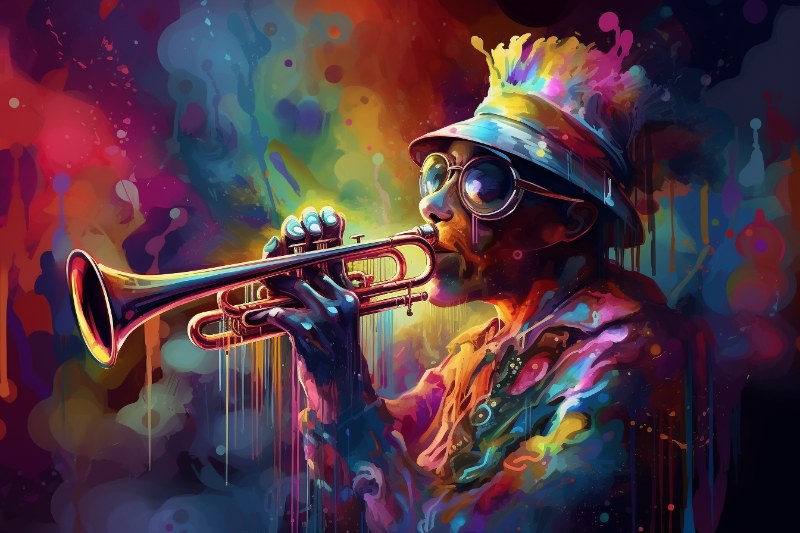
The Controversy: AI’s Surprising Cameo in Modern Music
The digital age has brought forth innovations in countless fields, but the music realm experienced a particularly unexpected guest appearance: AI song generators.
The startling debut came in the form of “Heart on My Sleeve.” This wasn’t just another trending track; it became a sensation that had the world baffled.
The authenticity of its vocals, reminiscent of industry titans Drake and The Weeknd, turned heads. Yet, these vocals were not the handiwork of seasoned vocal cords but the genius of audio AI tools.
Universal Music Group's (UMG) Stand: A Clash of Rights
As the track gained traction, so did controversies surrounding its origin.
The likes of UMG swiftly stepped in, raising alarms over potential copyright breaches. Their primary contention?
The AI tool behind the song had potentially been trained using copyrighted music from their vast library.
This set off a series of debates on the rights of streaming platforms, artists, and AI creators.
The burning question was: did AI-generated songs, even if they bore semblances to existing tracks, truly violate copyright laws?
The AI Music Dilemma: Exploring Uncharted Legal Territories
The "Heart on My Sleeve" incident wasn’t just a singular episode but a sign of a looming paradigm shift.
As AI makes inroads into audio production, the legal contours of music creation are blurring.
Can an AI, which potentially synthesizes thousands of songs to create a fresh melody, truly be held for copyright infringement?
And where does it leave creators who use AI music tools to foster their creativity?
These pressing questions beckon a reevaluation of current copyright laws, with many advocating for a more inclusive approach that acknowledges AI’s role in modern music-making.
Beyond the Law: AI's Impact on Music Creation and Consumption
While legalities form one aspect of the debate, there's also a significant conversation around AI's place in music from a creative standpoint.
Many purists believe that music should be an organic expression, fearing that AI might dilute this essence.
On the flip side, modern creators see AI as a valuable tool in their arsenal, opening up avenues for experimentation and novel compositions.
As AI song generators evolve, striking the right balance between human creativity and machine efficiency becomes pivotal.
The Controversy: AI’s Surprising Cameo in Modern Music
AI's entrance into the musical arena isn’t just a fleeting trend but signals a seismic shift in the industry's ethos.
While it ushers in a plethora of opportunities, it equally poses pressing challenges.
As the world jams to the tunes of AI, the industry stands at a pivotal juncture, reconciling its past with an AI-augmented future.
The Rise of the Machines: AI Takes the Mic
In a world where technology has permeated every corner, the music industry has not been left untouched.
With the emergence of “Heart on My Sleeve,” listeners across the globe were stunned.
Not by the familiar voices of music giants like Drake and The Weeknd, but by the realization that those haunting vocals weren't human at all.
Instead, an AI song generator was the artist behind the curtain, pushing the boundaries of audio AI tools and reshaping the very fabric of musical creativity.
Silent Battlegrounds: UMG and the Copyright Conundrum
With the song’s rising popularity, its unique origins couldn't stay hidden for long.
Universal Music Group (UMG), a titan in the music industry, raised a crucial concern.
If the AI was trained on their copyrighted music, did it mean that every note it produced was an infringement?
The debate around the rights of streaming platforms versus traditional record labels intensified, and it became evident that the age-old legal frameworks were ill-equipped to handle AI’s innovative prowess.
The Legal Labyrinth: Charting Unexplored Territories
AI's entry into the world of audio production has ignited a plethora of legal challenges.
If an AI system crafts a melody by synthesizing knowledge from countless tracks, where does copyright begin and end?
What's the stance on creators leveraging AI music tools to augment their artistry?
These questions, while seemingly technical, have profound implications, calling for a modernized and adaptive legal system that addresses the realities of AI-driven creativity.
Artistry in the Age of AI: Redefining Creativity
Setting aside legal intricacies, the integration of AI in music creation evokes passionate responses from purists and innovators alike.
While traditionalists champion the raw, emotional depth of human-made music, the new generation views AI as a collaborator, not a competitor.
Generative tools bring forth new horizons of experimentation, with machine-aided compositions offering a fresh palette of sounds and styles.
As AI continues to evolve, its role in shaping the music landscape remains a riveting watch.
Unraveling the Magic: How does AI Generate Music?
The process of music creation has been reimagined, courtesy of AI.
With Empress and its suite of AI music tools, artists have a unique opportunity to merge human creativity with machine precision.
The next hit track might just be a harmonious blend of both worlds!
AI: The Digital Maestro
It's a digital age, and AI is the maestro orchestrating its symphony. Diving deeper, Artificial Intelligence isn't just a high-tech buzzword.
It's the fusion of intricate algorithms and colossal databases that propels machines into realms previously reserved for human intelligence.
By sifting through these databases, AI not only learns but constantly refines its audio production capabilities, evolving to meet the dynamic demands of modern music creators.
Empress: The Ultimate Muse for Modern Musicians
The name 'Empress' isn't just a moniker; it's a testament to the power-packed suite of audio AI tools it offers.
Let's delve into the tools that have made Empress a darling of the music community:
1. Song Idea Generator:
Stuck in a creative rut? Simply input an emotion or theme, like 'Euphoria' or 'Heartbreak,' and the Empress Song Idea generator will offer song concepts, hook ideas, and even mood-based lyrics to kickstart your creative process.
2. Bass Brain:
Ever craved that punchy bassline that resonates with your song's soul? With Bass Brain, define the type of bass, chords, genre, and bpm. Whether you're seeking an aggressive slap bass for funk or a deep synth bass for EDM, Bass Brain crafts it seamlessly.
3. Drums De Dior:
Rhythms are the heartbeat of a track. With Drums De Dior, input your desired genre and bpm, and watch as it conjures drum patterns that infuse life into your compositions. From tight hip-hop beats to laid-back reggae grooves, it’s all just a click away.
4. Harmonious Hitmaker:
Every song has the potential to be a chartbuster, and Harmonious Hitmaker ensures that. Simply feed in the emotion and genre, be it a melancholic ballad or an energetic pop number, and it will tailor-make a song structure that's poised for success.
5. Melody Mind:
Yearning for a lilting tune for your flute? Or perhaps a melancholic sequence for a piano? Just input into Empress's Melody mind the instrument, chords, genre, and bpm, and witness some amazing melodic variations based on your creative vision!
Imagine wanting a jazz rhythm at 100 bpm for a saxophone; Melody Mind can deliver your goals.
6. Lyric Lab:
Think Futuristic Sci-Fi lyrics with an ominous tone? Input in your genre and style, and out pops a myriad of lyrical possibilities that can help complete your lyrical needs! Empress Lyric Lab is a great tool for anyone looking for the right words for their composition.
7. Chord Candy:
Deciphering the perfect chord sequence or chord loops can be challenging. Specify the instrument, key, genre, and bpm, and let Chord Candy do the rest.
Fancy an upbeat ukulele sequence in C major for pop? Enjoy the countless variations created by Empress's Chord Candy!
Combining Technology with Melody: AI in Music Creation
The tapestry of music has always reflected the nuances of human emotions, stories, and cultural experiences.
Throughout history, we've used various tools, from ancient instruments to modern synthesizers, to craft these musical narratives.
Today, in the era of digital innovation, a new protagonist has emerged in the musical landscape: generative AI.
What Exactly is Generative AI?
Generative AI is a potent branch of artificial intelligence that hinges on the capability of crafting entirely new data sets from scratch.
Picture a painter with a blank canvas, except this artist is a digital entity with an infinite palette.
In the realm of music, this translates to an ability to churn out novel tunes, rhythms, and harmonies by deeply understanding the essence of existing musical compositions.
Software empowered with generative AI functions like a virtual composer.
But instead of a lifetime of musical experience, it banks upon vast data repositories of music to identify patterns, intricate nuances, and the underlying structure that constitutes a musical piece.
Peeking Behind the Curtain: How Do AI Music Generators Work?
The core essence of these music-making marvels lies in their underpinning machine learning models. Two predominant methodologies empower these virtual maestros: deep learning and neural networks.
A. Deep Learning: Here, the magic unfolds in layers. As the name suggests, deep learning navigates through the intricate layers of musical data.
By training on vast repositories of music, these AI systems become adept at discerning patterns, structures, and elements that make a song resonate with its listeners. With this knowledge, it can then craft compositions that not only sound good but often, uncannily human.
B. Neural Networks: Inspired by the complex web of neurons in the human brain, neural networks in generative AI function in a somewhat analogous manner.
They excel in recognizing recurring motifs and themes within music pieces. Once these patterns are identified, the AI system can extrapolate and weave entirely new compositions around them.
After their rigorous training phase, these AI models are ready to take on the challenge of crafting music. With user-defined inputs, like the desired genre, tempo, or key, these systems can fine-tune their creations.
For instance, if one desires a somber piece in the key of D minor with a slow tempo, the AI can produce a piece aligning with those parameters.
Alternatively, if the creator wishes to infuse certain melodies or rhythms, the AI music generator can incorporate and build upon those elements seamlessly.
The Point of Intersection between Music and AI
The intersection of music and AI offers a fresh dimension to creative expression.
While purists may argue the organic touch of human creativity is irreplaceable, there's no denying the expansive opportunities generative AI brings to the table.
Whether it's a seasoned musician looking for inspiration or a newbie trying their hand at composition, AI music generators beckon a future where barriers to music creation become increasingly blurred.
With technology's assistance, the symphony of the future might just be a harmonious collaboration between man and machine.
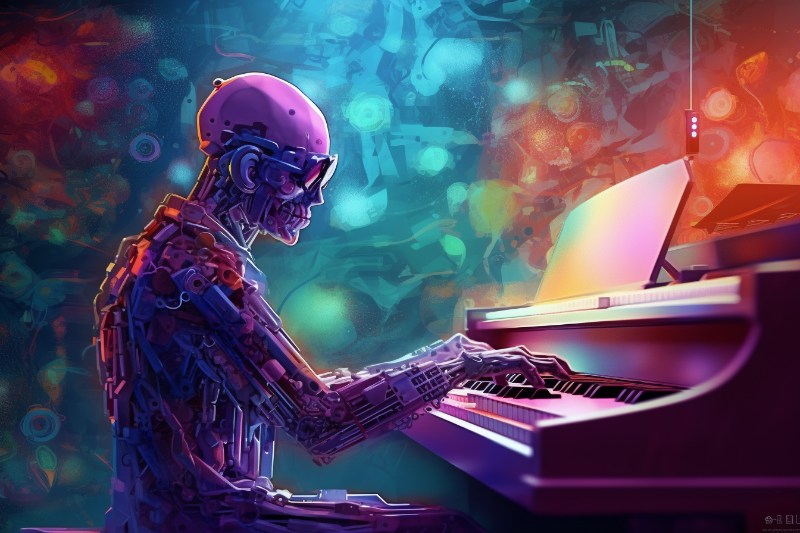
Challenges and Opportunities with AI in Music Education
However, as with any technological advancement, integrating AI music generators into education is not without challenges.
There's a concern about the potential for AI to overshadow human creativity or to diminish the value of human-made compositions. It raises questions like: Will students become too reliant on AI, compromising their innate creativity?
Or will it pigeonhole them into certain patterns, thus reducing musical diversity?
AI Opportunities For Learners
On the flip side, AI presents unparalleled opportunities. It democratizes music-making, making it accessible to those without traditional music backgrounds or resources.
This means students from diverse backgrounds and with varying skill levels can all participate, learn, and create together.
The landscape of music education is broadened, no longer confined to the elite or those with access to expensive instruments and training.
Assistant Teachers
Moreover, AI music generators can assist teachers in identifying gaps in students' understanding of musical concepts.
Through analysis, AI can pinpoint areas where a student might be struggling and provide feedback or suggestions for improvement.
This personalized approach ensures every student has the chance to grow at their own pace.
The Role of Empress in Shaping This Future
Empress, with its vast arsenal of tools, is poised to play a pivotal role in this transformation.
Offering a diverse range of AI-powered features, from AI Melody Generators to the Harmonious Hitmaker, it allows students to dive deep into the intricacies of music composition.
These tools can inspire students to explore unfamiliar genres, rhythms, and harmonies, thus expanding their musical horizons.
Empress: A Great Learning Tool
More than just a tool, Empress can be seen as a collaborative partner in the learning process.
It fosters a symbiotic relationship where students feed into the AI, and in return, the AI offers insights, inspiration, and innovation.
By engaging with platforms like Empress, students are not just passive recipients of knowledge.
They become active participants in their education, driving their learning journey.
AI Music Tools in Education
The intersection of AI and music education is a promising frontier. While it comes with its set of challenges, the potential benefits far outweigh the concerns.
With careful integration and a focus on maintaining a balance between traditional and AI-driven learning, the future of music education is bright.
And with platforms like Empress leading the charge, students are equipped with the tools they need to flourish, innovate, and redefine the world of music.
AI Generative Music and Ethics: Harmonizing the Digital Era
In an age where technology gallops at a breathtaking pace, the interface between Artificial Intelligence (AI) and music presents a symphony of opportunities and concerns.
While AI's inroads into music offer innovative avenues, it simultaneously drums up critical ethical questions about creativity, authenticity, and value.
The Crescendo of AI in Music:
The musical landscape has been forever changed by the footprints of AI.
Gone are the days when music was solely a human domain.
Today, tools like music generators allow even the uninitiated to craft melodies with a few clicks, bridging gaps between expertise and enthusiasm.
From simulating popular artist styles to organizing vast sample libraries, AI-driven technology has permeated every facet of the musical realm.
Yet, as these melodies play out, there is an echoing query about the destiny of genuine human artistry and the ramifications of such digital intervention.
Stakeholders in the Concert:
Major labels, startups, and tech magnates find themselves in a complex dance around AI music.
While some entities grapple with AI's implications, others are racing to embed themselves within its framework.
Key ethical concerns arise from the origin of the data training these tools, intellectual property, and, importantly, the compensation of artists whose sweat and toil have been distilled into AI algorithms.
FAQs: AI Song Generator
Q1: Is AI-generated music royalty-free?
Most AI Song Generators are royalty-free
Q2:How do I adapt my song's mood using Empress?
Tools like the Song Idea Generator allow you to input emotions, and the AI crafts accordingly.
Q3: How quickly can I generate a song?
With Empress, you can craft a song in mere seconds. Sign up to Empress now and take a look at some of the free AI Music Tools!
Q4: Can I share my AI-generated songs on streaming platforms?
Yes, flaunt your music anywhere!
Q5: What's the most exciting genre you've experimented with?
(Now it's your turn to answer)
Follow the future of music with Empress. Check out our blog to learn how you can effectively use these AI music tools.
